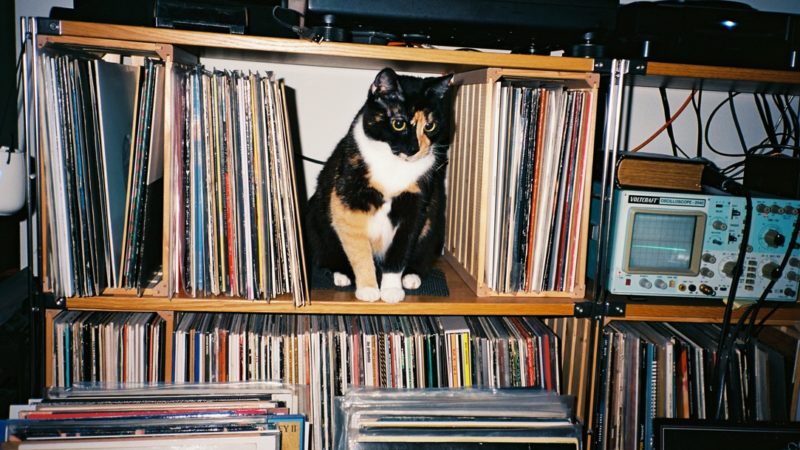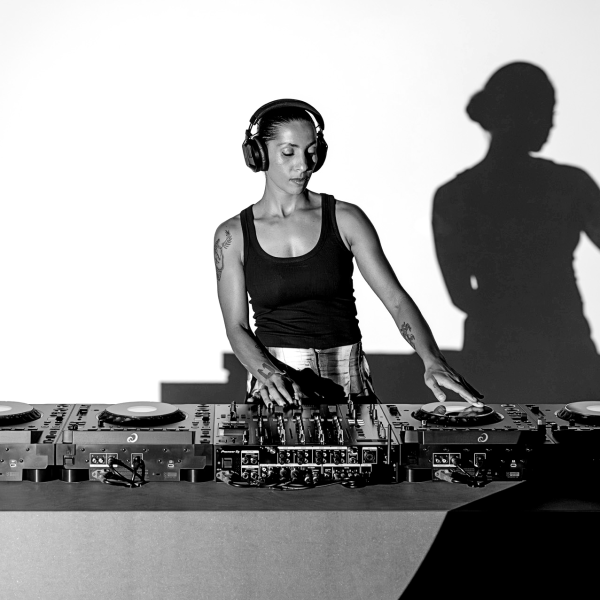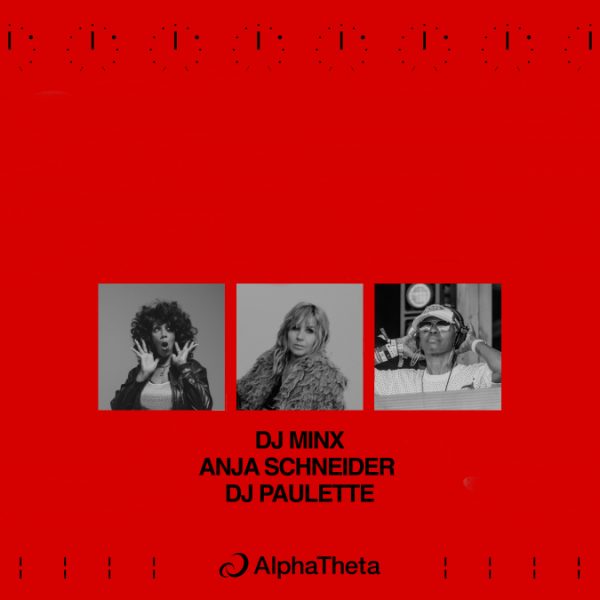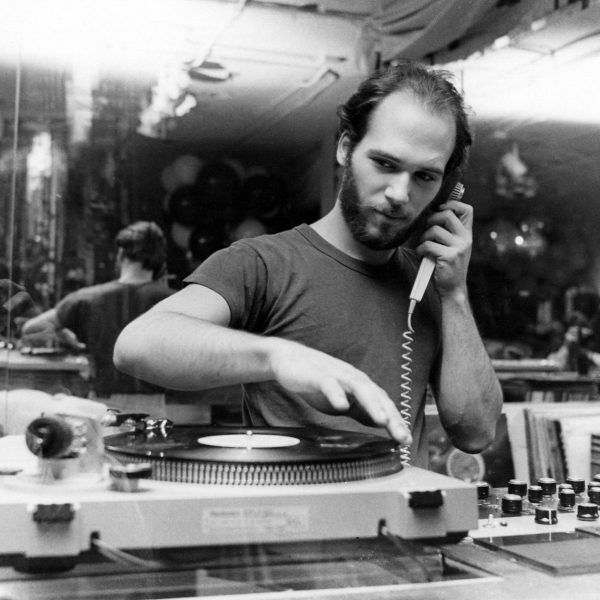Summer of 2020. Clubs were shut, festivals cancelled, international travel mostly brought to a standstill. But for me, this dark era had one silver lining: the return of the home mix.
Robbed of any other context in which to hear club music (and allowed, in Germany in those summer months, to gather in small numbers in private), my friends and I suddenly found DJing at home very, very exciting. More than that, we realised that for years we’d neglected something that had been very dear to us.
The home mix wasn’t just the next-best thing. In many ways, it was even better than the parties and festivals we were missing. A new sense of connectedness emerged, both to the music and to one another. Anytime I found a new track I liked, my first thought was how it would go down at the next mix, which was never far off. Removed from the idea of club gigs—preparing for them, or even just imagining them—DJing was more fun, not less.
Does our obsession with clubs and festivals take something away from our enjoyment of DJing? Many of us never play for packed dance floors, or haven’t gotten to yet, but we still have amazing moments on the decks. That’s because mixing at home, alone or with friends, is its own special ritual, one that works differently from club DJing and offers its own unique rewards.
It’s also criminally overlooked. Given the tiny portion of DJs who actually make a living from playing out, the home, not the club, is surely the most common setting for a DJ set. For many of us it’s perfectly fulfilling. Digging for music and playing your discoveries, or showing them off to friends, is an incredibly valuable way of having fun, connecting with others and expressing yourself creatively. In many ways, it can be better than the average gig.
This holds true even when you’re DJing for an audience of one: yourself. When I was young, I would lay in bed at night with my Discman, listening to a track or two from one CD, then swapping in another, then another. Each one seemed to set the stage for the next, so much so that I sometimes found it hard to get to sleep, always fighting off an urge I’d later know as “one more tune.” Laying there, I felt a communion both with myself and the music. My nightly playlists were a musical cousin to the journal entry. Throughout my tween and teenage years, this was probably my single favourite thing to do.
Decades later, I do a technologically enhanced version of the same thing. I pull a bunch of records, load up a new playlist on my thumb drive, and let it rip, unsure where I’ll go or how long I’ll be going. Sometimes it ends pretty quickly, the mood, for whatever reason, not quite there. Sometimes it goes on for hours, and I’ll end up laughing at myself for getting teary-eyed at some old throwback. (One afternoon mid-pandemic, this honour went to Sasha’s “Xpander.”)
Some of my best memories with music have happened late at night, deep into a mix, alone, fully in the flow, knowing, at each moment, the next four, five, six tracks I want to play, and continually tweaking this mental list. Music has been my favourite thing since I was a kid, and this is still my favourite way of hearing it. Granted, the ideal dance floor experience is difficult to beat—a perfect set, on a perfect soundsystem, surrounded by friends. But that experience is elusive, happening on only a fraction of nights out. The home mix is a much more reliable companion.
It’s also a great way to master the skill at the heart of all DJing: finding the perfect song for that specific moment. It can be fun to DJ to an imaginary scenario—a festival stage, the main room of your favourite club, a dreamy after-hours event. But the real craft of DJing is picking the right track for the situation you’re actually in, something that’s easier to do in a familiar setting, like your home, or a friend’s home.
You find the right track not by racking your brain, but by listening to that little voice that, ever so quietly, tells you what it would be. This changes constantly, minute to minute. Even songs you’ve loved your whole life will sound wrong in a given moment, often for reasons you can’t quite explain. This little voice is fickle, picky, and learning to hear it is a delicate skill. But every DJ, and most normal civilians, know the feeling of putting on a few songs you love, thinking “almost… not quite,” then landing on the winner. You always know when you’ve got it.
A range of factors, internal and external, material and immaterial, determine what the perfect track would be—your mood, your recent listening habits, recent events in your life, the time of day, the weather, the light in the room, and so on. It’s not a stretch to say that, every single moment, these factors align in a way that is totally unique, unprecedented and never to be repeated again, even when it’s just you, alone at home. This is why, every time, we need to tune into that little voice and see what this particular moment calls for.
Now let’s bring other people into the mix.
Say you’re listening to music alone. What you put on is based on the fact that you’re alone, and draws on the range of music that suits this situation. All of us, I’d wager, have music we only listen to when no one else is around.
Say another person walks into the room. The essence of the moment has changed, affected in countless subtle ways by their arrival. A big one is their taste in music. Another is their relationship to you. Do you want to impress them? Are you in a role of educating them about music, or learning from them? Are you such good friends that it’s a no-judgement zone where anything goes? Or do you feel, rightly or wrongly, that you have something to prove to them? These are just some of the basic ways each person in the room shapes the moment, and subsequently what music works in that moment. This process continues with each new person you add.
Once you get past the size of a small group, these calculations are more muddled, but no less essential. In a club, there are so many people that you have to work in a more generalised way, sizing up the crowd in groups rather than as individuals—younger crowd, gayer/straighter crowd, more tourists, more locals, music nerds or people just out to have fun, and so on. These considerations guide your selections the same way the arrival of one or two friends would. The difference is that, with a crowd made up mostly of people you don’t know, or in a foreign city where you don’t get all the cultural cues, you’re forced to make messy judgements based on superficial details—crude guesses about strangers instead of expressions of kinship with friends.
In a more intimate situation, you can read everyone in the room meaningfully and really communicate through your selections. You can play a track you know someone else there will love and has not heard, then have the pleasure of watching their ears prick up. You can reference big nights out you’d shared, or bygone eras you enjoyed together. In your selections, you show your friends how well you know them. Like a conversation that keeps going long after a meal is finished, an extended home mix can leave you feeling warmly connected, with other people and with yourself.
In my experience, the best festivals and club parties are the rare cases where this phenomenon holds true even with a bigger crowd, parties where, despite the size and presence of many perfect strangers, that thread of intimate familiarity still holds.
But no matter how cosy the occasion, the simple fact of playing for paying customers who expect to be entertained is itself limiting. There may be some confident DJs whose self-expression is untouched by the presence of people judging their skills. But for many people, the element of public performance hinders sincerity more than it helps it.
Now, in late summer of 2022, clubs and festivals are back. I’ve gone out pretty much as often as I can. I’ve heard amazing music at clubs and festivals this past year. But I mourn the home mixes, which, inevitably, fell off again once events returned.
So, are you an avid bedroom DJ who’s never played in a club? A skilled selector thus far relegated to the warm-up set? Do you place DJing at the core of your life, despite living flights away from any decent clubs or festivals? Try not to be down on what you’ve got. Despite our collective obsession with big names and big stages, the home mix will always have a place at the centre of DJ culture, offering some of its deepest pleasures.




